
by Matthew Orwat | Aug 24, 2017
On Saturday, September 16th, 2017, from 9AM to 12PM, UF / IFAS Extension Washington County will be providing a rose gardening workshop for gardeners across the Panhandle. Many roses are hard to grow in the Florida Panhandle without investing considerable time and energy into spraying for insect and disease problems. This workshop will teach attendees how to select and sustainably grow roses adapted to the hot-humid conditions of the Southern Gulf Coast. There will be opportunities for outdoor learning and hands-on activities.
Topics include:
- Selection of disease resistant rose cultivars adapted to the lower South
- Resources to obtain hard to find easy care rose cultivars
- Soil and Nutrient Management
- Disease and insect management
- Irrigation
- Rose Propagation
Participants will be given the opportunity to propagate their own rose and take home their own propagation assembly to grow their own roses from scratch.
Refreshments will be provided and a door prize will be available.
Address: Washington County Ag Center Auditorium, 1424 Jackson Ave, Chipley FL 32428.
Pre Registration required for count: Contact Nikki or Cynthia at 850-638-6180 or email Matthew Orwat at mjorwat@ufl.edu
or register online at eventbrite HERE !
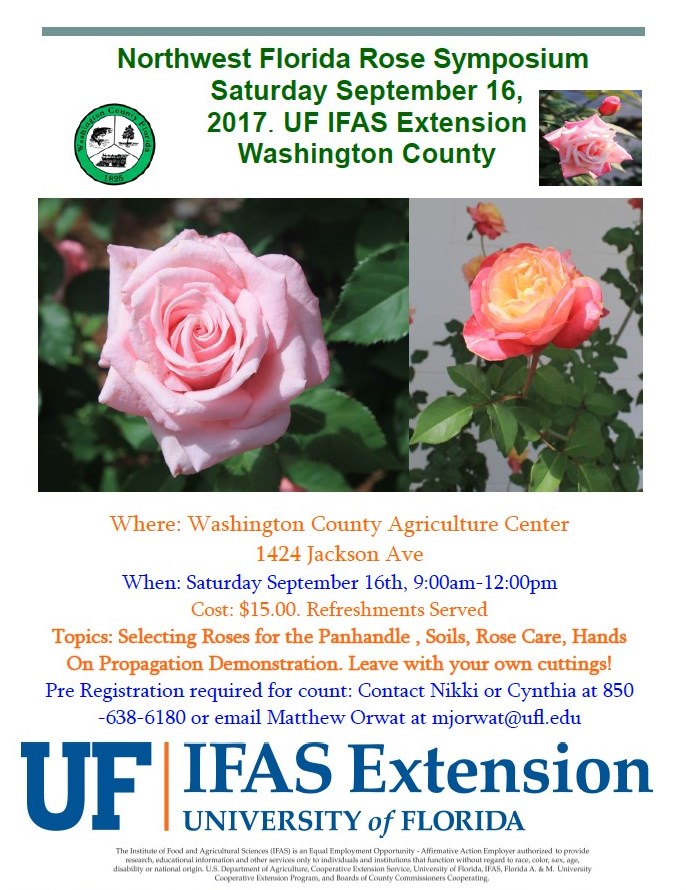
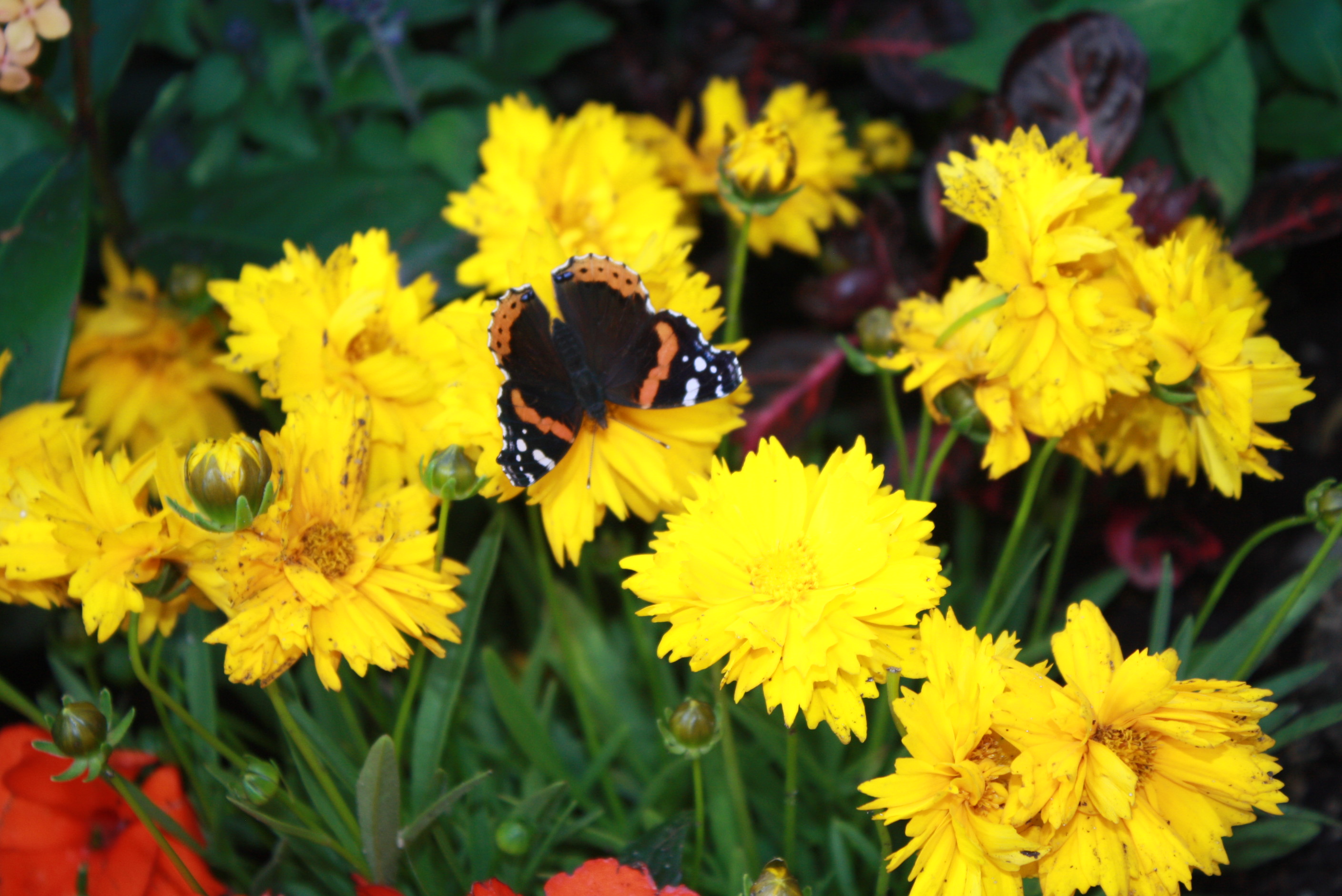
by Matt Lollar | Jun 2, 2017
The Jackson County Master Gardeners are hosting a Mead Making Workshop on Saturday, June 17 at the Jackson County Agricultural Center Classroom, 2741 Penn Avenue, Marianna, FL. Registration opens at 8:30 AM (Central Time) and the event will end at 2:00 PM.
Mead is an alcoholic beverage made from fermenting honey. Mead is described in various writings from Aristotle, Pliny the Elder, and in the epic poem Beowulf. This workshop will teach you everything you need to know in order to make your own mead at home! You will go home with a small carboy, airlock, honey, and yeast.
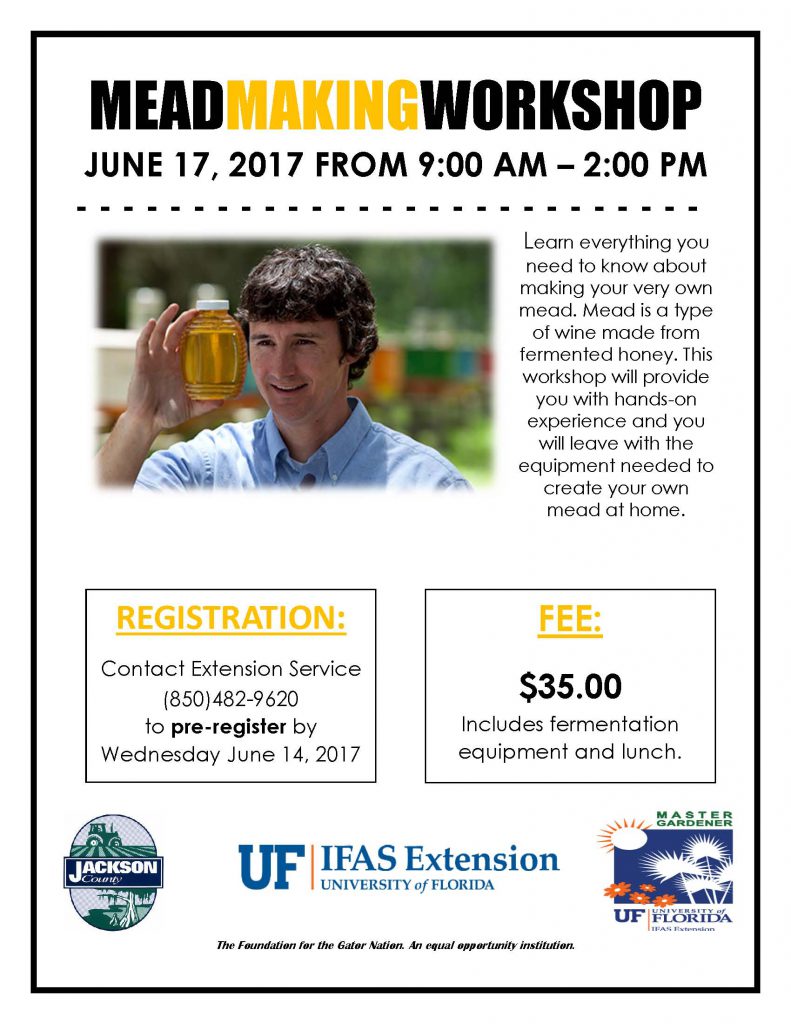
The registration fee is $35.00 and covers lunch and all materials and equipment to make your own mead. The workshop is limited to 24 participants. For more information, please see the Mead Making Workshop Flyer. You can pay at the door, but we do ask that you call the Jackson County Extension Office to RSVP at: 850-482-9620 or email mlollar@ufl.edu.
by Molly Jameson | May 11, 2017
If you are a farmer, you have most likely heard about the Food Safety Modernization Act, or FSMA, by now. If you are not a farmer, you probably do not know that food safety regulations are going through a big change. The FSMA, which was passed in 2011, is considered the largest update to food safety regulation in over 80 years.
The proposed produce safety rule under the FSMA is very robust, establishing the minimum standards for worker training, health and hygiene, agricultural water use, animal soil amendments, on-farm domesticated and wild animals, equipment, tools, buildings, and sprout production.
But this new rule will not apply to all farmers. The commodities they produce and the value of their produce sold will ultimately dictate whether they will need to comply.
First, the rule does not apply to produce that is not a raw agricultural commodity, or commodities the Food and Drug Administration (FDA) has identified as “rarely consumed raw.” Secondly, if a farm has an average value of produce sold of $25,000 or less within the previous three years, they are also exempt.
If the farmer produces an agricultural commodity in which the rule applies and the value of their produce sold is over $25,000, it is still possible the farm will be exempt from most of the requirements.
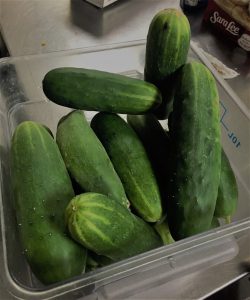
Fresh cucumbers, for example, are considered a raw commodity. But cucumbers that will undergo further processing, such as for pickling, would be eligible for exemption from the produce rule. Photo by Molly Jameson.
For instance, if the average annual monetary value of food sold directly to qualified end-users was more than the average annual value of the food sold to all other buyers within the previous three-year period, the farmer would meet the first half of exemption eligibility.
What is a “qualified end-user”, you ask? They are considered the consumers of the food, or restaurant or retail food establishment, located with the same state as the farm that produced the food (or no more than 275 miles).
But even if farmers meet the above exemption eligibility standards, they must also meet the second requirement. That is, the average annual monetary value of all food sold during the three-year period must be less than $500,000, when adjusted for inflation.
If this all sounds confusing, you are not alone! This is why the FDA developed a chart to help farmers determine if they will be exempt: Standards for Produce Safety – Coverage and Exemptions/Exclusions for Proposed 21 PART 112.
Whether farms will be exempt from the FSMA produce safety rule or not, it is always a good idea to follow good agricultural practices and to have a farm food safety plan. To learn more about food safety on farms, view the EDIS document Food Safety on the Farm: An Overview of Good Agricultural Practices.
If you are a farmer, or know someone who would benefit from having a food safety plan, the UF Small Farms Academy Extension Agents are offering a Building Your Own Farm’s Food Safety Manual Workshop in Tallahassee to help growers develop their own food safety manuals.
The workshop is tailored to fresh fruit and vegetable farms, fields, or greenhouses and is partially supported by a grant through the Florida Specialty Crops Block Grant program from the Florida Department of Agriculture and Consumer Service.
The registration fee is $35 for the first person representing a farm and $15 for an additional attendee from that farm. The workshop is limited to 20 farms on a first come, first serve basis.
The workshop will take place at the Amtrak Station, County Community Room, 918 Railroad Ave, in Tallahassee, FL, on Tuesday, May 23, 8:00 a.m. to 4:00 p.m. Register on Eventbrite by following this link: https://farmfoodsafetymanualworkshop.eventbrite.com
Please note, this class will help farmers develop their farm’s food safety manual, but it does not fulfill the new FDA FSMA one-time training requirement.
by Matt Lollar | Apr 7, 2017
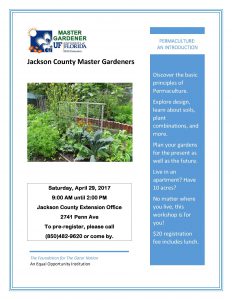
The Jackson County Master Gardeners are hosting “Permaculture: An Introduction” on Saturday, April 29. Join us from 9AM to 2PM on Saturday, April 29 at the Jackson County Extension Office (2741 Penn Ave., Ste.#3, Marianna, FL) to learn the basics of permaculture. What is permaculture you might ask? Basically, it is the utilization of edible plants in your landscape to create a food forest. The workshop is $20 and includes lunch. To register or for more details please contact Matt Lollar at mlollar@ufl.edu, (850)482-9620, or come by the Jackson County Extension Office.
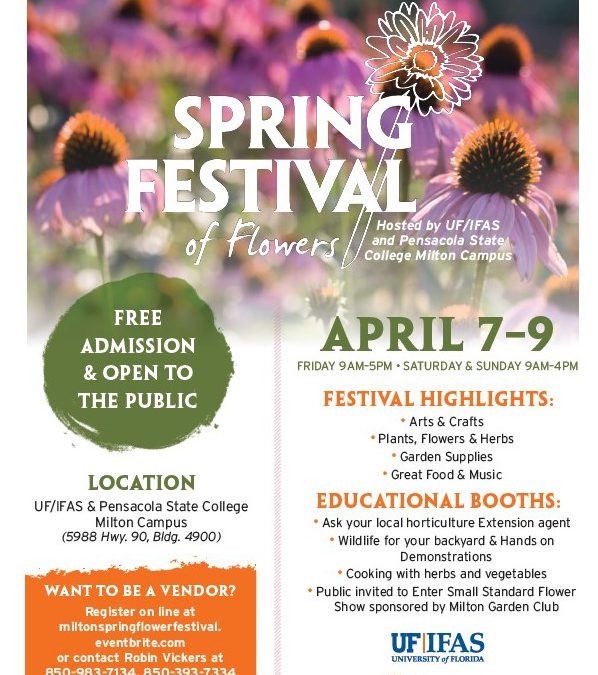
by Mary Salinas | Mar 20, 2017
About the Spring Festival of Flowers
The University of Florida, IFAS and the Pensacola State College Milton Campus invites you to join them for one of the largest festivals of the season. This is a popular event that draws plant enthusiast from near and far. This festival features plant nurseries, UF student club plant sale, arts & crafts, great food, music and educational opportunities.
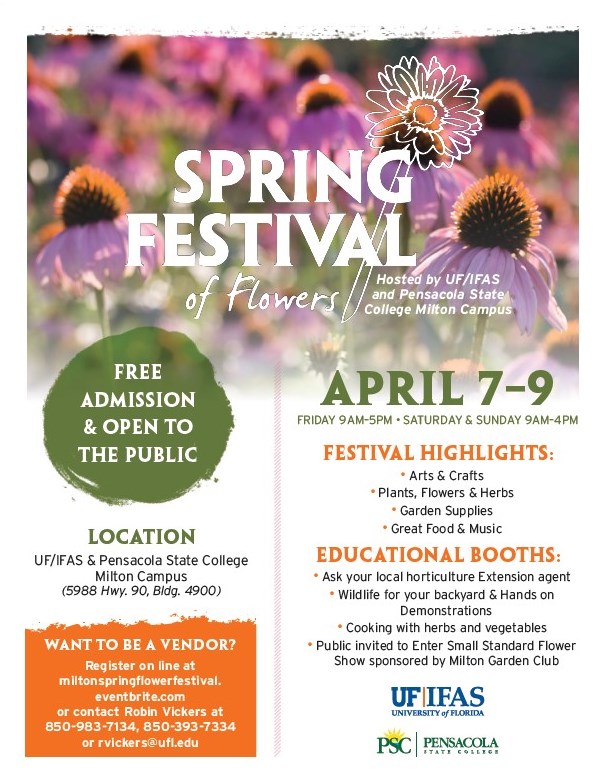
Location
University of Florida, IFAS and the Pensacola State College Milton Campus located at 5988 Highway 90, Milton.
Dates and Times
Friday, April 7, 2017 * 9 AM – 5 PM
Saturday, April 8, 2017 * 9 AM – 4 PM
Sunday, April 9, 2017 *9 AM – 4 PM
by Julie McConnell | Feb 23, 2017
Regardless of what the tag says one size does not fit all. As with clothing, a piece will undoubtedly be too large for some and too small for others. Trying to go with a “one size fits all” approach to lawn care will lead to the same kind of frustration and disappointment as an ill-fitting garment.
All turfgrass is not created equal. Thus management of our various turf species requires different methods. It is common for a homeowner to be unaware of what type of turfgrass they have – it’s all grass after all – what difference does it make? Misidentification leads to problems because proper management for one type may be counterproductive to another type. In order to create a practical turf management plan, it is critical that the species of grass is properly identified.
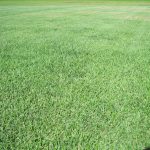
Although many grasses look similar it is important to know exactly what kind you have to maintain it properly. This photo shows Empire Zoysia. Photo credit: Julie McConnell, UF/IFAS
Why is it important to know the species of turf in a lawn?
Two of the most common mistakes extension agents observe is excessively low mowing height of St. Augustinegrass and over-fertilizing Centipedegrass. Both of these errors can reduce turfgrass vigor and decrease its tolerance to pest issues. Another potential maintenance pitfall is using a herbicide that is not labeled for use on a given type of turfgrass. Several popular herbicides available on the market can cause damage to St. Augustinegrass and/or Centipedegrass. Thus turf can be inadvertently killed by herbicides when they are applied to the wrong species.
Before a lawn maintenance plan is developed, be sure to know what type of grass is present and then follow UF/IFAS recommendations for proper care. If assistance is needed with identification, contact your local extension office.
To learn more about lawn care, visit this site or plan to attend “Caring for Your Florida Lawn” at the UF/IFAS Extension Bay County office on April 8th. For more details call 850-784-6105.









